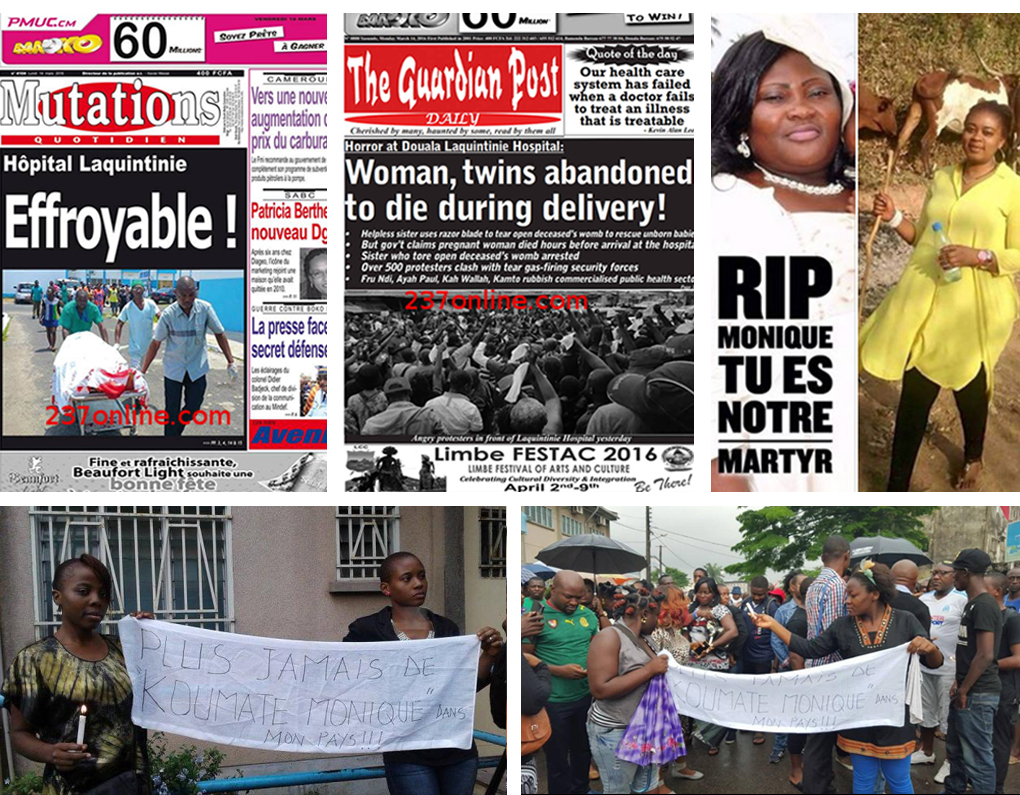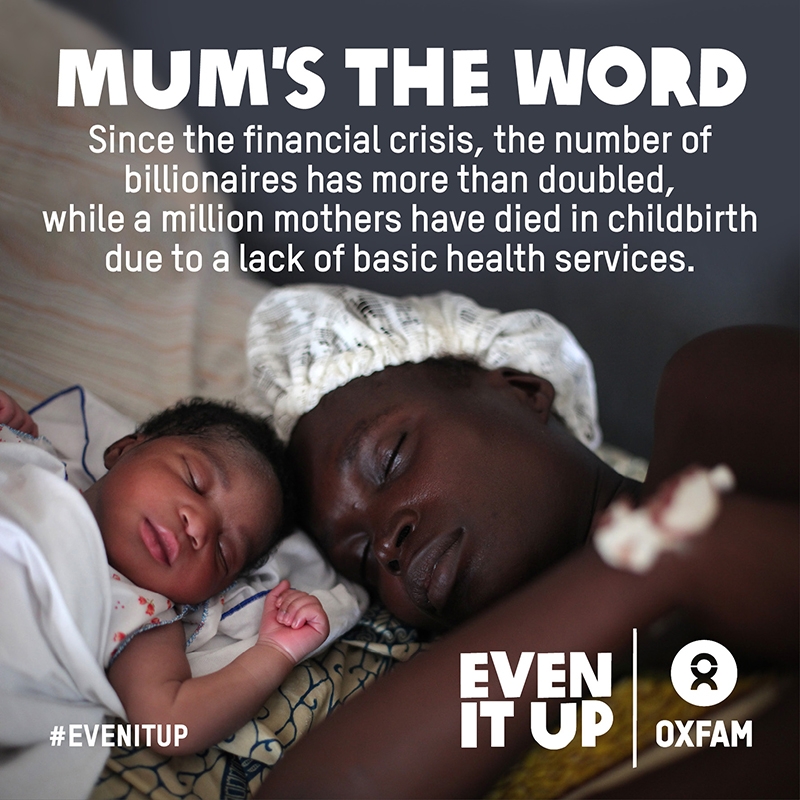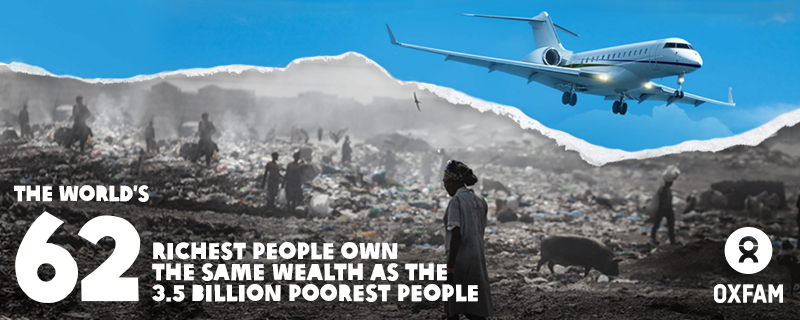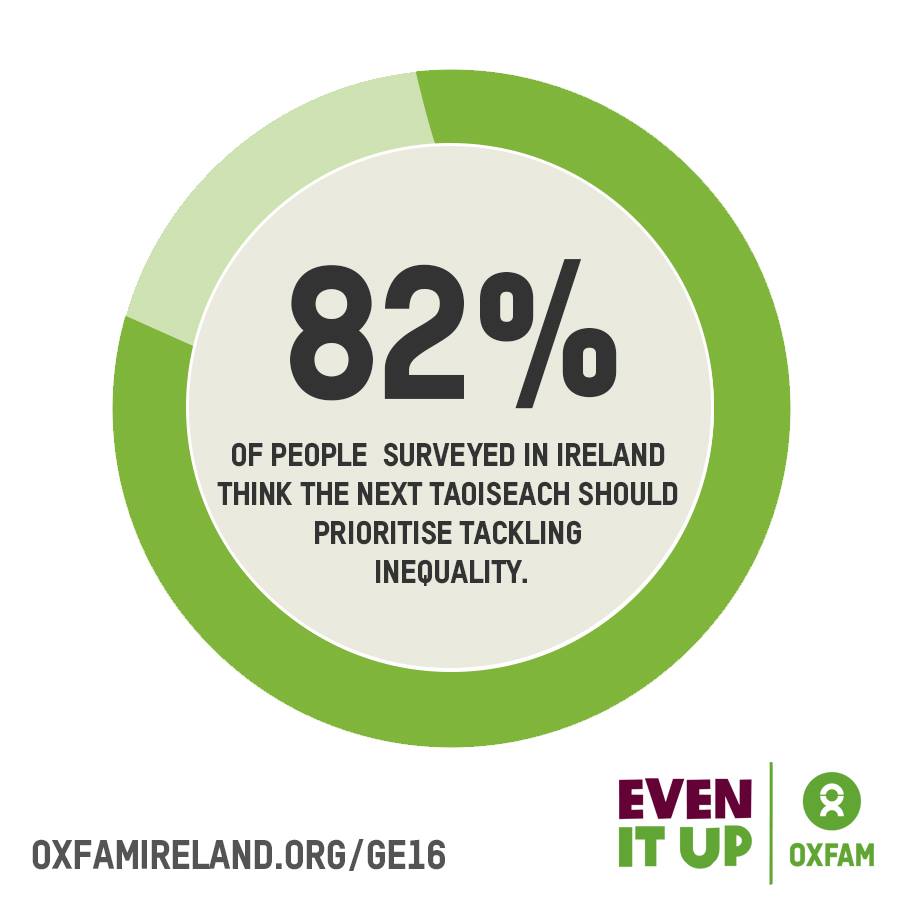- 4 min read
- Published: 5th April 2016
#PanamaPapers: Death and taxes
The only two certainties we have are death and taxes, so the saying goes.
The Panama Papers released this week by the ICIJ show the enormous lengths people will go to in order to evade or avoid paying taxes. But they don’t show the serious impact of such actions — which can literally mean death for some.
A story which emerged from Cameroon last month illustrates this in the most tragic way. Monique Koumate (31) was expecting twins. Her partner took her to hospital when she went into labour and started experiencing complications. But because they didn’t have the money to pay the fees required, she was reportedly left outside the maternity unit in the city of Douala for hours, in desperate need of urgent care, the door closed to her.

Top-left:Front page reports from Cameroon of Monique Koumate's tragic death. "Lanquinitinie Hospital: Horrifying!", "Woman, twins abandoned to die during delivery". Top-right: People in Cameroon took to social media to pay their respects and express their horror at Monique's death. Botom: Protestors hold banners saying "Never again a Monique Koumate in my country!" Photo credits, clockwise from top: 237online.com, CulturEbene, Simonoteba.com, TheObserveres.France24.com, CameroonOnline.org, camer.be/obesso.net.
Monique’s family did their best to help her — a graphic video shows a woman reported to be her niece trying to perform a caesarean section using a knife — but one twin was stillborn and the other died moments after birth. Monique also died on the steps of the maternity unit — three lives lost feet away from the medical attention they needed but could not afford.
Cameroon has a severe shortage of doctors, just one for every 5,000 people. The government introduced a fee-based system for healthcare in a bid to bridge a funding gap and make services more widely available.
Illicit financial flows out of Cameroon are 63% of the country’s health budget and the equivalent of its entire foreign direct investment and aid each year.
VIDEO: PROTEST FOR MONIQUE KOUMATE, MARCH 13 2016
Every single year, poor countries lose around €150bn/£119bn due to tax dodging by wealthy individuals and companies. This is money that should be used to fund schools, hospitals, homes and infrastructure.

INEQUALITY IS OUT OF CONTROL
It’s part of the bigger and growing problem of economic inequality. An Oxfam report published in January showed that just 62 people own as much net wealth as the poorer half the world’s population — approximately €1.62tn/£1.25tn.
Think about that for a moment: the number of people who could probably comfortably fit inside your local pub, own as much as 3.6bn people do.
Our economic system is skewed in favour of the wealthiest. Far from trickling down, income and wealth are instead being sucked upwards at an alarming rate.

One of the trends underlying this concentration of wealth and income is the return to capital versus labour. In almost all rich countries and in most developing countries, the share of national income going to workers has been falling. This means workers are capturing less and less of the gains from growth.
In contrast, the owners of capital have seen it consistently grow (through interest payments, dividends, or retained profits) faster than the rate the economy has been growing.
Tax avoidance by the owners of capital, and governments reducing taxes on capital gains, have further added to these returns.
Thanks to the recent revelations and previous investigations such as Lux Leaks, public awareness — and frustration — has increased dramatically. Ahead of the Irish general election in March, an Oxfam Ireland survey conducted nationwide found that 82% of people agreed that measures to specifically address tax-dodging needed to be a priority for the incoming government and Taoiseach.
The survey also showed growing concern in relation to large-scale tax dodging with 86% of Irish people holding the belief that big companies and wealthy individuals are using tax loopholes to dodge paying their fair share.
All governments, rich and poor, have to work together to tackle the inequality so clearly illustrated by the Panama Papers because it is their citizens who are the biggest losers. They need to fix the system and penalise banks and any others who facilitate tax-dodging.

Real transparency is needed — establishing public registers of the beneficial owners of all companies, foundations and trusts (so governments know who really owns and benefits from them and can tax them accordingly).
We also need to know where companies really make their profits and where they are paying their taxes. This would allow countries to fairly tax multinationals where their profits are. To achieve this, a simple solution is on the table.
Country-by-country reporting, as it is called in tax jargon, would require multinational companies to publish this information. Some countries, including Ireland, say they’ll implement it, but the information won’t be made public.
This is a crucial flaw — because if the information remains confidential between tax authorities, the public and civil society won’t be able to hold multinationals to account for their tax practices — and developing countries won’t be able to scrutinise the global tax arrangements of multinationals in their territory.
As political leaders in Ireland continue to engage in discussions on government formation, the measures Ireland can take to assist in the reform of the global tax system should be part of the agreement of any progressive Programme for Government. The human cost of doing anything else is simply too high.
Jim Clarken is Chief Executive of Oxfam Ireland. This article was first published by The Irish Examiner.
